An Interview with Suzanne Samples author of FRONTAL MATTER Glue Gone Wild.
Those who know me well, know how much I used to LOVE roller skating! They may recall the birthday party I hosted at a roller rink (the year prior to my brain cancer diagnosis) where I proudly showcased the brand new roller skates I purchased for myself as an early birthday gift. The fact is, my entire adult life I secretly yearned to play roller derby. Between my birthday outfit that year, the roller rink, and my new skates–those in attendance must have been clued-in to my deep longing to become a roller derby girl, which partially explains why I’m so friken excited about today’s interview!
I am truly honored to have the opportunity to introduce you to Suzanne Samples, Ph.D. (a.k.a “Hammer” and “SZ”). Suzanne played five consecutive seasons of roller derby! FIVE CONSECUTIVE SEASONS of real, live, ROLLER DERBY! I’m in awe! Oh, and she also wrote a poignant memoir that was published by Running Wild Press in 2018 called FRONTAL MATTER Glue Gone Wild.
While the title of this post could imply Suzanne went through rehabilitation from a physical injury she incurred in the roller rink that is far from the kind of rehabilitation I’m referencing. You see, the rehabilitation I’m actually talking about is much more sinister and wasn’t caused by anything Suzanne did or didn’t do.
One day Suzanne was jamming in the rink and the next she was experiencing a “leg seizure” which quickly led to the discovery of a highly aggressive form of terminal brain cancer known as Glioblastoma Multiforme (GBM) in her left frontal lobe. As she wrote, “A month earlier I was flying around a rink on roller skates smacking into people with my hips, and then I can’t even walk. Within a day everything was gone.” Suzanne found herself in rehabilitation learning to walk again and regain use of her right side after brain surgery. (By the way, that was precisely the predicament I was in after my craniotomy due to the fact that my tumor was located in my left frontal lobe as well).
An extremely talented writer, Suzanne received her Ph.D. from Auburn University and taught Rhetoric and Composition at Appalachian State University for six years in Boone, North Carolina prior to her brain tumor making itself known.
Her memoir is written in the present tense which adds a high level of intrigue to her story. She has already beaten the odds. Her diagnosis was accompanied by the prognosis that she would survive about a year with roughly 33 radiation treatments and chemotherapy for six months. Suzanne provides hope to others diagnosed with GBM by the very fact that she is still living three years later. Her book is a gift to the brain cancer community and beyond.
Suzanne (who was 36 at the time of her diagnosis) confronts her mortality in a brutally honest and occasionally humorous way. There are no wasted words. Each segment of the book can stand alone as an individual essay or poem. One of my favorite sentences in her memoir was; “Roller derby is close to an exact science, close to medicinal, close to killing a brain tumor. Each point is hard-earned and projected onto the screen after won. Everyone must fight until the end, and then sometimes, you still lose.” She takes the reader through what it’s like to have “complete control of your limbs to not being able to control your right side or have any say in what your right leg does.” At one point in the story, her doctor asked about the purpose of the book and she responded, “It’s a narrative of what happens when the unexpected wrecks your life… its purpose is to exist.”
“I’m lost in a mass of information that becomes a tumor of its own…”
-Suzanne Samples
Wendy: Hi Suzanne! As you can probably tell, I’m beyond thrilled to have the opportunity to interview you (although I have to admit the circumstances that brought us together are less than desirable).
Let’s start with a very important two-part question. What was the name of your roller derby team and how did you get involved in the sport?
Suzanne: I played derby for the Burn City Rollers in Auburn, AL; Blue Ridge Roller Derby in Asheville, NC; and, Appalachian Roller Derby in Boone, NC. I moved around a bit for school and my job, so I was able to play on a few different teams! I got involved with roller derby when a woman I worked with (who later became a very close friend) started The Burn City Rollers. My officemate at the time begged me to go to the first practice, and I didn’t want to go. I hadn’t skated since I was a kid, and I wasn’t exactly the athletic type. However, I let her drag me to practice. She ended up leaving before the practice was over, and I played derby for almost a decade!
Wendy: FRONTAL MATTER Glue Gone Wild was written as you went through your diagnosis, craniotomy, a trial drug, chemotherapy, and radiation. It was published by Running Wild Press in 2018, how are you doing now?
Suzanne: I am actually doing great now! I struggled a lot at first, though. My right side was paralyzed for a period of time, but slowly and through lots of physical therapy, my movement started to return. I just had to keep trying and pushing, even if my limbs didn’t work when I thought they should. At one point, everything on my right side below my shoulder was paralyzed, but now, my right foot is the only paralysis I experience. I don’t currently use any mobility aids, but my right foot still “drops” and drags sometimes. Although I still experience some fatigue, I’m able to walk 20 miles a week for exercise, which is something I never thought I’d be able to do again. I’m unable to skate, but I’ve taken up new hobbies, like fishing and exploring abandoned train tunnels.
“Although I still experience some fatigue, I’m able to walk 20 miles a week for exercise, which is something I never thought I’d be able to do again. I’m unable to skate, but I’ve taken up new hobbies, like fishing and exploring abandoned train tunnels.”
Wendy: I get the “Frontal Matter” part of the title since your tumor was in your left frontal lobe. What’s the meaning behind “Glue Gone Wild?”
Suzanne: I am, in my heart, a research fanatic. After I received my diagnosis of Glioblastoma Multiforme, I read everything I could. I researched so much that my doctor told me to stop. I quickly learned that glio is Greek for glue. Of course, when tumors start growing, cells start duplicating wildly, so I thought “Glue Gone Wild” was a fun way of putting it.
Wendy: That is so creative, I love it!
Explain your “fun nerdy side.” What are these “mystery-solving deductive reasoning subscription boxes you wrote about?”
Suzanne: I’ve always been a book nerd. I taught myself to read as a young child, and my parents would force me to socialize if I needed to be punished. Grounding me to my room didn’t work because I would just sit in there, read, and have the best time.
The year before my diagnosis, I subscribed to an online mystery box club by the Mystery Experiences Company. I believe that a writer created the boxes; they are super cool! He created a fictional city plagued by mystery and murders. It’s a monthly subscription, and you use deductive reasoning to solve puzzles and ultimately, a murder. I credit the company for helping me flex my deductive reasoning skills after my tumor messed up my memory a bit.
Wendy: At one point you said, “I would like to leave this world with the message that roller derby is changing the world, and people should pay attention.” Can you please elaborate on why you believe roller derby is changing the world?
Suzanne: Roller derby is a sport that many people still don’t know about or understand; although a lot of people play these days, derby is still a bit underground. Lots of folks don’t get that roller derby is not the same as it was in the 1970s–now, derby can be played on a flat track, you can’t actually throw elbows, and derby players can be of any size or shape. It’s a sport now and not just for show. Off the top of my head, I can’t think of another activity that is so welcoming to all different types of people. The sport really helps individuals realize their potential while putting that potential toward a team mentality. Although I’ll never play derby again, I use the lessons I learned in derby in nearly every area of my life.
“Although I’ll never play derby again, I use the lessons I learned in derby in nearly every area of my life.”
Wendy: You wrote so beautifully about the shock of your diagnosis. For those who haven’t yet read your book, can you please share a little bit about what it was like to transition from being so physically fit to having to rely on others for nearly everything?
Suzanne: In a word, it was awful! I haven’t always been physically fit, but I’ve always been extremely independent. Relying on others is not something I do well. I was the kid who could not wait to drive or go to college, simply so I could be on my own. I thrive when I’m by myself, so relying on other people for every single thing was quite new to me. Although I’m not proud of it, I was the “fall risk” hospital patient who was trying to get out of my bed every single time the nurses left the room. I was super bummed when they moved me beside the nurses’ station and gave me one of those beds that beeped! They didn’t tell me I had a beeping bed, so I found that out the hard way.
Wendy: Yep, I had a similar experience making me a “fall risk” patient too. It must be something about us being skaters (LOL)!
Throughout your book, you made reference to the fact that you’ve had type one diabetes for over thirty years. I ended up with type two diabetes induced by the steroid I was taking to reduce swelling in my brain prior to my craniotomy. I can’t imagine what it must be like to grow up with type one diabetes.
How did diabetes impact your diagnosis and recovery?
Suzanne: Ugh, I’m sorry! I don’t remember my life without diabetes, and in part, it’s what has made me so independent. I’ve given myself at least four injections a day since I was five. In a way, I feel like diabetes trained me to deal with brain cancer. I understood living with illness very well, so I wasn’t afraid of what that meant. I still maintain that a very low blood sugar is the worst feeling in the world! However, dealing with diabetes and brain cancer sometimes becomes a nearly impossible burden. It’s difficult to juggle both at the same time, and diabetes has actually excluded me from some brain cancer clinical trials. Diabetes is a daily nuisance, but brain cancer is the giant dark cloud looming over my head.
“In a way, I feel like diabetes trained me to deal with brain cancer. I understood living with illness very well, so I wasn’t afraid of what that meant.”
Wendy: Of all the treatments, blood draws, surgery, and medication you had to endure; it sounded like completing radiation was the most difficult part of your journey. You said, “The completion [of radiation] was harder than all the years and time I put into my Ph.D. or any other academic effort.” You also wrote, “I tremble with excitement during my final radiation treatment…I ask to keep the mask. I do not own a gun, but I have the desire to take the mask to the shooting range and blow the plastic to pieces. I imagine those plastic pieces bursting into indistinguishable atoms until nothing remains.”
It amazes me that there are normal, healthy people who continue to make a big deal about wearing a simple face mask during a pandemic. If you could educate others about what it’s like to wear a radiation mask for brain cancer, what would you say?
Suzanne: When I was fitted for my mask, the tech asked me what medication I took. I misunderstood the question and said, “My insulin.” He said, “No, I mean, Xanax? I’ve never seen anyone so calm. Most patients start screaming as soon as we start fitting the mask.” I’m eerily calm in scary medical situations, but it’s still a terrifying process. I’m a child of the 80s, so the best way I can describe the radiation mask is to say that it’s similar to the Jason mask from Friday the 13th. You have to wear the mask through the radiation process, and worst of all, your head and body are bolted to a table. No fun! So yep, wearing a mask during a pandemic did not seem like a big deal at all.
Wendy: You recently set a goal of walking 100 miles within one month, and completed it! I’m not sure if people recognize what a true accomplishment that is after everything you went through. However, after having to relearn how to walk again myself, I absolutely get it!
What led you to set that goal and how challenging was it for you to accomplish it?
Suzanne: You are awesome! I started very small. I, unfortunately, gained a lot of weight after my diagnosis because I wasn’t moving a lot. I don’t think that one’s weight should designate how happy they are, but it was causing my blood pressure to rise, and I was having a lot of falls. I was finally to the place where I could walk a little bit on my own, so I kept pushing. I walked one mile a day, and then two miles a day. Before I knew it, I was walking five miles a day. It was a great feeling. I then saw an ad on the app I was using to track my miles for a challenge to walk 100 km in a month. I decided to Americanize it and make it 100 miles! I had so much fun walking around the area where I grew up and exploring all the abandoned train tunnels there.
Wendy: That’s incredible! I love walking and now you’ve inspired me to up my game as well.
You have a new book coming out soon. What is the synopsis and how can people find it?
Suzanne: I do! It’s called STARGAZING IN SOLITUDE. Readers get to continue alongside me on my cancer treatment and recovery journey. It’s part travelogue, part memoir, and part comedy show. The release date is December 1, 2021, but you can pre-order the book on Amazon. It received a starred Kirkus review and has already been on a few Amazon bestseller lists, so I take it that’s a good sign? I hope!
Wendy: Wow! Congratulations Suzanne! I’ve already pre-ordered my copy and can’t wait to read it!
Is there anything else you would like to share?
Suzanne: I love to hear from other survivors, and I love talking to people (or their family members) who are newly diagnosed! You can find me on Facebook @Suzanne Samples;
Instagram @never_sold_a_thigh_master (people confuse my name with Suzanne Somers a lot);
or Twitter @suzanne_samples.
Suzanne was recently recognized by this blog as “A Face of Strength.” Her campaign image is below and her quote reads: “Three years ago, my neurosurgeon confessed that when he was doing my craniotomy, he never thought I would walk again… This March, I set a goal to walk 100 miles for exercise within the month, and I met that goal today! This did not happen overnight, and I worked extremely hard to meet this goal. I’ve fallen multiple times, tripped, had a ton of low blood sugars, and nearly been swallowed by mud (which was rather comical), but I’ve always gotten back up and kept going.”
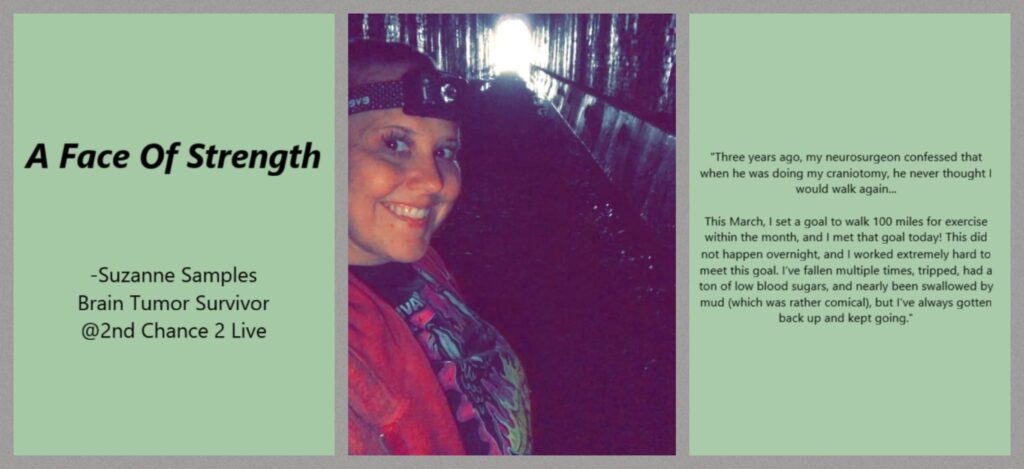
Suzanne wrote a lot about her animals in her memoir (following are a few photos of them).
Duffles (above) was a big support during radiation!
Delilah (Blinky)
Pru (she passed away, but she was my fave and helped me a lot during my diagnosis)
Gatsby the dog

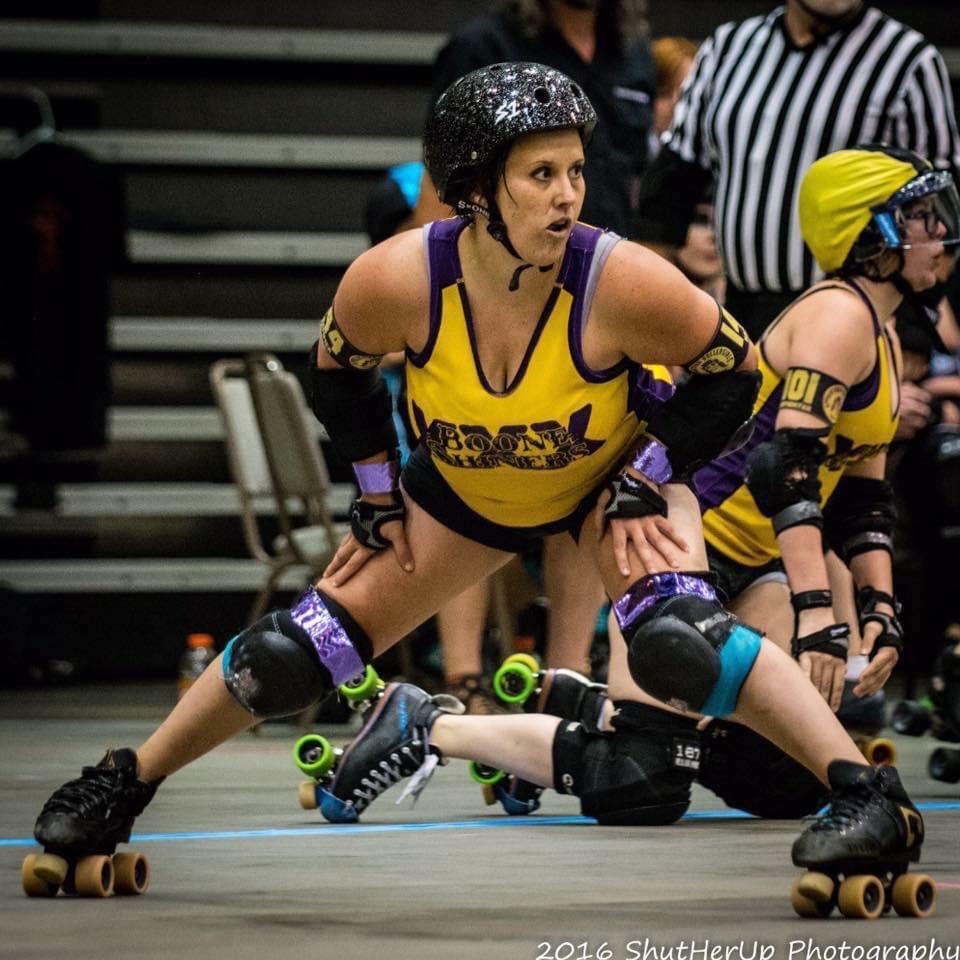
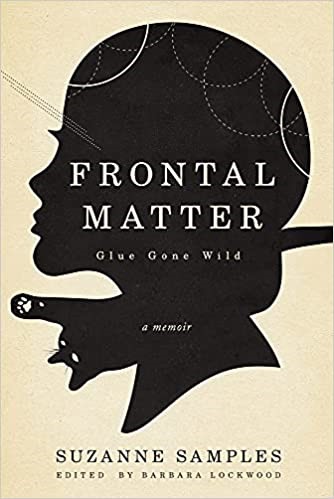
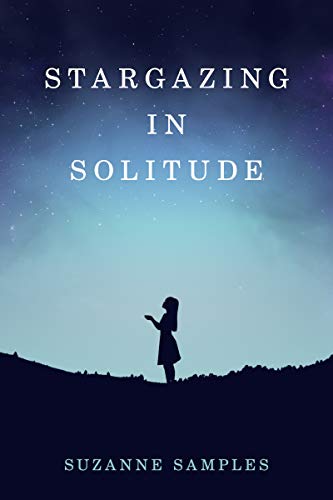
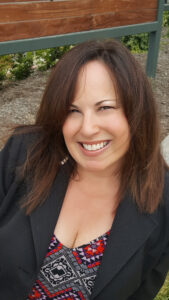 Hello. My name is Wendy and I’m a recovering workaholic. I'm also a brain tumor/cancer survivor.
The purpose of this blog is to share my experiences, memories, resources, and self-discoveries as I continue to transform from a workaholic into a more balanced person. I have read several books and stories about others who have had similar experiences
Hello. My name is Wendy and I’m a recovering workaholic. I'm also a brain tumor/cancer survivor.
The purpose of this blog is to share my experiences, memories, resources, and self-discoveries as I continue to transform from a workaholic into a more balanced person. I have read several books and stories about others who have had similar experiences 